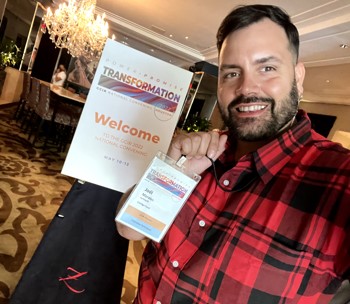Navigating the field of philanthropy can be challenging, especially for members of marginalized communities. Convenings like these are crucial because they are informed by the intersectional nature of oppression, the social and political context, and the critical role immigrants and refugees play across our social justice movements.
Throughout the convening, I heard from leaders who shared their powerful stories, reflecting the challenges and adversity they faced leaving their home countries and settling in a new one. Some stories were heartbreaking, while others demonstrated the power of resistance and showed how coalition building and uplifting the voices of those directly impacted is not a maybe but a must. I was reminded that these efforts should also include youth leadership, which is essential to securing wins for BIPOC communities now and for generations to come.
GCIR’s lineup of plenary sessions, workshops, and entertainment was one for the books. During the workshop “Using c3 and c4 Strategies to Advance Pro-immigrant Policies”, we looked at how 501c4 strategies can strengthen the work of 501c3 organizations, and we explored ways to educate and mobilize people on issues that directly impact their communities. In the session “Advocating for Immigrants at the Border”, speakers delivered a clear message that racism, xenophobia, and transphobia exacerbate an already dangerous situation at the border. They emphasized that, now more than ever, we must continue to build power and invest in those doing the work led by and for immigrants and refugees.The conference also included site visits that took participants to destinations across Houston to learn about immigrant justice work happening in the city. One site visit I participated in was the “Toxic Tour” of the East End, led by the local organization T.E.J.A.S. I learned how some of the largest refineries and chemical plants in surrounding residential neighborhoods negatively impact immigrant communities and how the work of groups like T.E.J.A.S is moving the needle on environmental justice in the East End.
A common theme I heard throughout the event resonated deeply: "I had to unlearn to learn again." That's what life feels like for marginalized people. But together we can continue to fight for inclusive communities, prevent family separation, move away from the use of detention centers, and show solidarity with immigrants and refugees.
I returned from GCIR’s convening with tools, resources, and new friendships that will last a lifetime.

